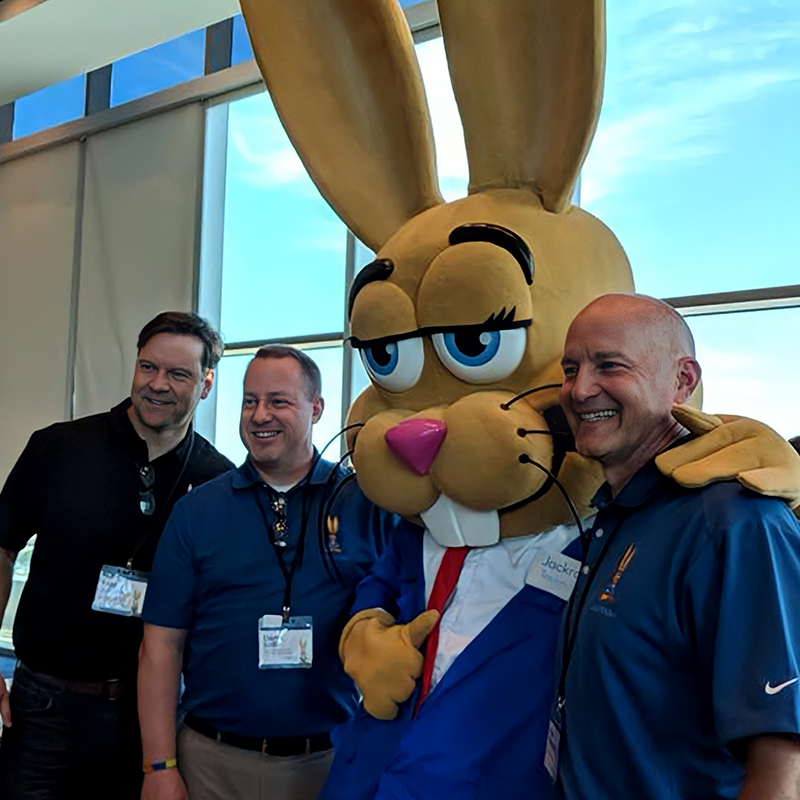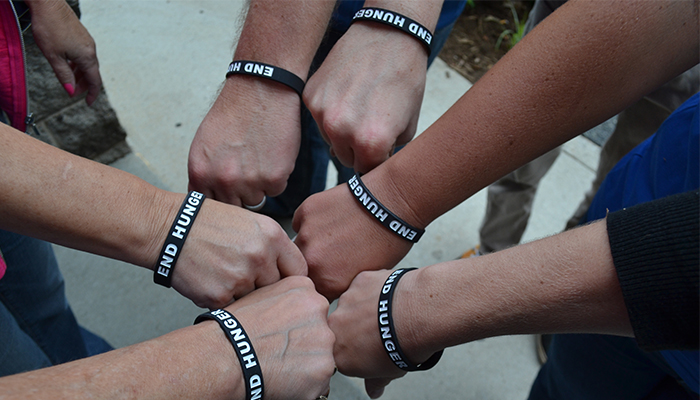We all think volunteering is great – whether you do it individually or through corporate efforts.
It’s great for participants personally, and it’s great for businesses culturally and responsibly.
Jackrabbit believes in it and is involved by monetarily supporting an international organization that helps children in impoverished areas of the world and by doing hands-on volunteering to supply hygiene items to children and to provide food to local needy families. Even with all of this, could we do more? Could we make volunteering more rewarding for employees and for our company?
To answer our question, we need to ask “What is the next thing?” Because you know that we “innovators” aren’t going to leave well-enough alone, so to speak. We’re going to find a way to go beyond whatever exists at face value.
Enter transformative volunteering.
Let’s back up for a second to define ordinary volunteering so we can more clearly understand volunteering that goes beyond.
Community service – as many call their volunteer opportunities or projects – is officially labeled as transactional volunteering. It is a simple exchange: time or resources for reward (of making a difference). When this is done by businesses, companies pay employees for the time that they volunteer – or simply plan volunteer projects to take place during normal work hours. These activities may be coupled with monetary support or donations of materials/items for those in need. Whether activities or donations, these are focused on particular “transactions” and not on the acceptance and pursuit of fulfilling one’s social responsibility.
Transactional volunteering is happy with the reward from the individual instances of service.
Again we ask “How can we go beyond that?”
- By guiding changes to occur in the volunteers themselves.
- By reaching beyond single events to inspire change to become increasingly pro-social human beings with a greater capacity for empathy.
That is what transformative volunteering is all about.
Why would a business want to do this?
According to experts in CSR (corporate social responsibility), there are 4 main reasons:
- Increased levels of affective commitment. Employees who are given the opportunity to give, volunteer or otherwise “do good” for colleagues and communities are likely to show increased organizational commitment.
- Improved job performance. Employees who volunteer show increased job meaningfulness and heightened performance.
- Competitive hiring position. As high as 2/3 of those interviewing for jobs find companies with CSR programs more attractive than those without.
- Improved organizational resilience. Essentially, CSR programs help to develop leadership skills in participants. This, in turn, provides value to the organization through a greater understanding of how they can contribute to their organization’s resiliency. In other words, organizations with CSR programs have a greater capacity to anticipate, respond and adapt.
Click here to read a blog post that identifies and links to the research behind why this is good for businesses. Click here to read a post detailing the idea of transformative volunteering and sharing its short-term wins and long-term benefits.
You may say “This sounds great, but how do I actually get employees interested?” Basically employees want to know what’s in it for them. The problem is that the answer to what they want out of volunteering is not a consistent one across potential volunteers. People volunteer for all sorts of reasons and are looking for as many “rewards” from doing it.
Learn more about motivation in this blog post which is actually part 1 of a 2-part series. Here is part 2.
Realized Worth is an informative blog managed by an organization that designs and implements corporate volunteer programs. If you’re interested in CSR, you probably should be reading their blog.













